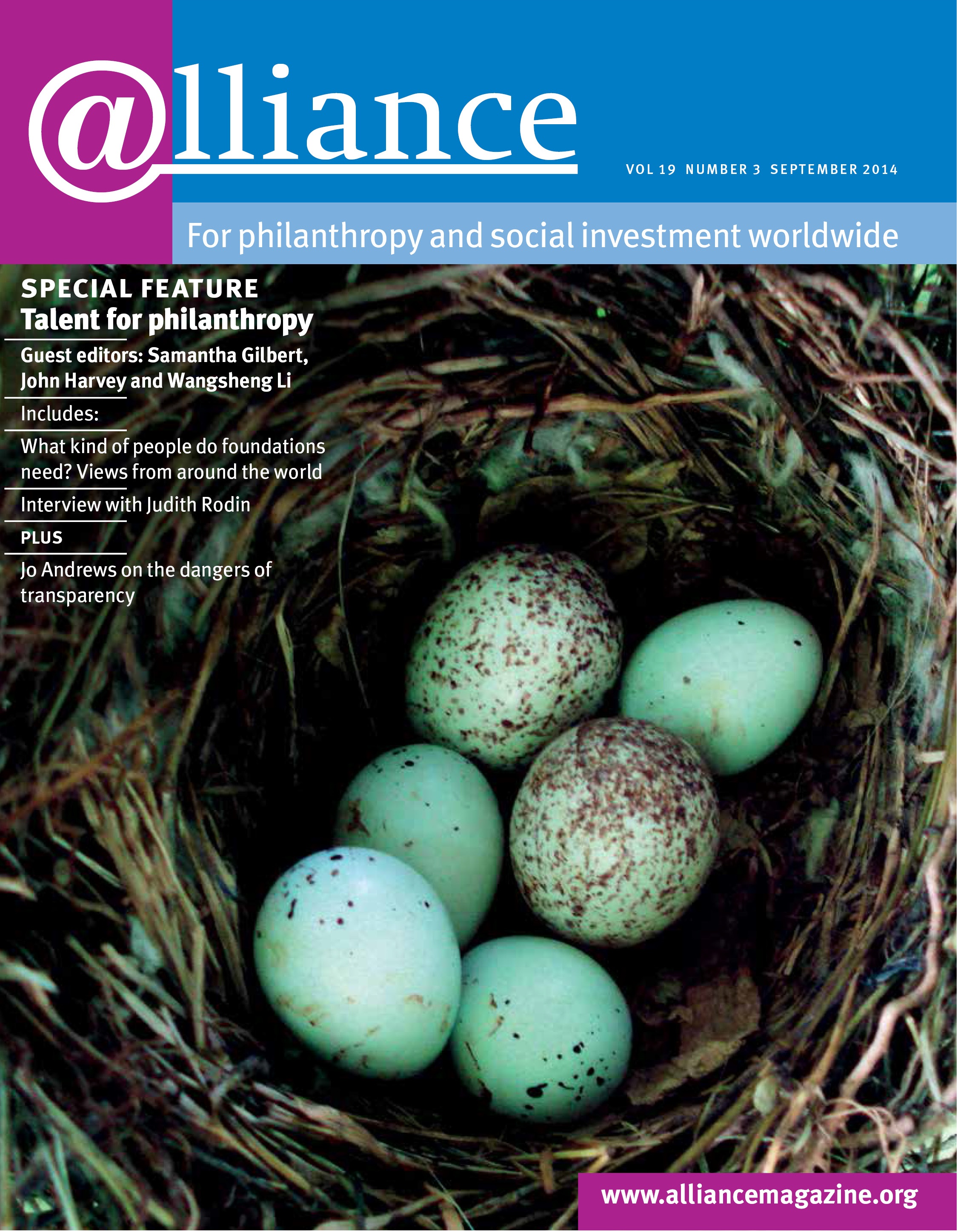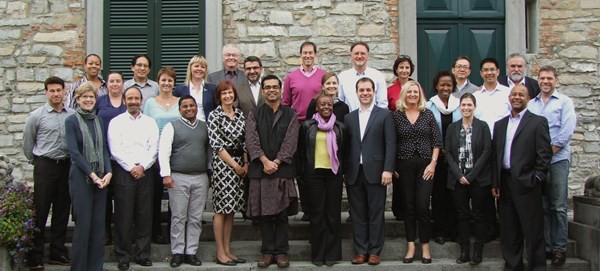Foundations are all about resources – and while the equation ‘resources = money’ is heard far too often, there is another variable that is frequently overlooked: people. It is the passion, time, engagement, belief and dedication of the people working within a foundation that turn visions into reality. But are these important human assets receiving as much attention as their financial counterparts? And if not, why not? Perhaps more importantly: what can foundation associations do to reverse this trend?
Fondazione Cariplo’s Pier Mario Vello used to remind colleagues that they should never lose focus on talent and people should never be taken for granted. At an event on social impact in 2013, for example, he compared impact evaluation to a diamond – and the people working for foundations to the golden ring where this diamond is set.[1] Most foundation leaders would agree with him, but in reality promoting the centrality of people may not always be straightforward – especially in small, flat organizations, where ‘talent manager’ isn’t on the business cards of many members of staff.
So while identifying candidates for the EFC’s 2014 European Learning Lab, a four-day workshop in Milan focusing on people and talent in foundations, which had been strongly supported by Pier Mario Vello, I asked several EFC members: ‘Who is in charge of HR at your foundation?’ Answers ranged from ‘no one’ to ‘we’re too small for that’ to ‘there’s too much to do at the foundation and we don’t really have time for HR’.
Concerned by these answers (and unwilling to give up on the idea of having a full classroom), I persistently asked to be redirected to someone (CEO, COO, board member … anyone) responsible for – and with a strategic eye towards – the ‘human component’ of their organization. While in some cases my request was met with perplexed looks and embarrassed silences, we were all relieved to finally convene an impressive group of professionals who understood immediately the importance of this matter and were able to join us in Milan in July. (Needless to say, there are countless more EFC members who see human resources management as a priority, and would have loved to participate if they had been available … they’ll have to wait for the next time we run the workshop!)
The role of associations
So when our colleagues at Alliance asked me to write an article about the role of associations in promoting people and talent management within their member organizations, I thought it best to turn the question over to the Learning Lab participants.
‘For the professionalization of foundations it is as important to have a space in which foundations can interact and exchange information and experiences (either face-to-face or online) as it is to participate in knowledge sessions,’ said Jennifer Van Vliet of the European Cultural Foundation. ‘Associations like FIN and EFC play a vital role in providing both this space and the knowledge sessions.’ While Andrea Silvestri of Fondazione Cassa di Risparmio di Cuneo revealed how comforting it is to find out that foundations of different sizes and origin, active in different countries and areas, face common issues. ‘Foundation-specific training opportunities such as the ones offered by associations,’ he added, ‘are a very efficient way of addressing these needs. The knowledge is there; it is only a matter of finding the right platform for practitioners to reach out and share it.’
Associations like the EFC help foundation leaders to plot their staff’s development paths by offering a wide variety of learning opportunities. Thanks to the financial support of the Adessium Foundation and the continuous and creative input of members like Fondazione Cariplo, at the EFC we have developed a yearly calendar of activities.
While we’ve noticed that participation has increased over the past few years and that more and more new members are taking advantage of our professional developmentactivities, we are of course aware that our job isn’t over. Time constraints; travel/accommodation costs; specific needs vs broader audiences; reaching the right targets without filling everyone’s inboxes; language barriers and unspoken cultural differences – these are just some of the challenges we still face. In spite of this, encouraging results and participants’ feedback provide the impetus for us to keep looking forward and trying to constantly improve.
Our plans for the future include stronger cooperation with our DAFNE (Donors and Foundations Networks in Europe) colleagues to coordinate and scale up efforts; development of a more diverse set of training tools and formats to reach more foundation professionals; and the creation of a network of ‘HR-sensitive’ leaders, which we are sure will help us to respond better to our members’ needs. We welcome comments, reactions and suggestions, and the doors of Philanthropy House – and my inbox – are always open!
1 http://tinyurl.com/piermario
Andrea Salvadori is professional development officer at the EFC. Email ASalvadori@efc.be
The EFC’s Professional Development programme
In our Professional Development programme, we offer a variety of learning environments to reach different levels of staff, from those in operational roles to those in strategic positions. Formats vary from 60-minute webinars (catering for those who find it hard to leave their office) to multi-day workshops (such as the European Learning Labs and the Summer Academy). Activities also target audiences of varying sizes, from large numbers (during sessions at the EFC Annual Conference) to focus groups (roundtable discussions for 15–25 participants) to individuals (ie our Tiepolo placement programme). On top of these face-to-face events, EFC members continue their learning experiences online thanks to our e-platform (communities.efc.be). This central hub allows resources to be exchanged, questions to be raised, and knowledge to be shared in a quick and structured way.
The Council on Foundations, USA
The Council on Foundations provides ongoing opportunities for professional development and convening with other foundations through webinars, seminars, and our annual Philanthropy Exchange conference. These are safe spaces for foundation leaders to connect and interact with one another. Through its network of members and the broader philanthropic sector, it connects leaders of varying types of foundations to best practices in talent management.
The Council also offers an online platform called Philanthropy Exchange (exchange.cof.org) for its members to exchange information, raise questions, and share knowledge on talent management practices.
A perspective from China
‘In regions where foundation networks are less developed or still in a nascent stage, one-off workshops and focused roundtable discussions have served well to support foundation staff development. The informal Hong Kong Foundation Exchange organizes such events and has contributed to a more dynamic environment for philanthropic development. The Philanthropy in Asia Summit, held annually in Singapore, is popular with foundation executives to help them to stay abreast with the latest in philanthropy.’
Wangsheng Li, ZeShan Foundation, Hong Kong







Comments (0)